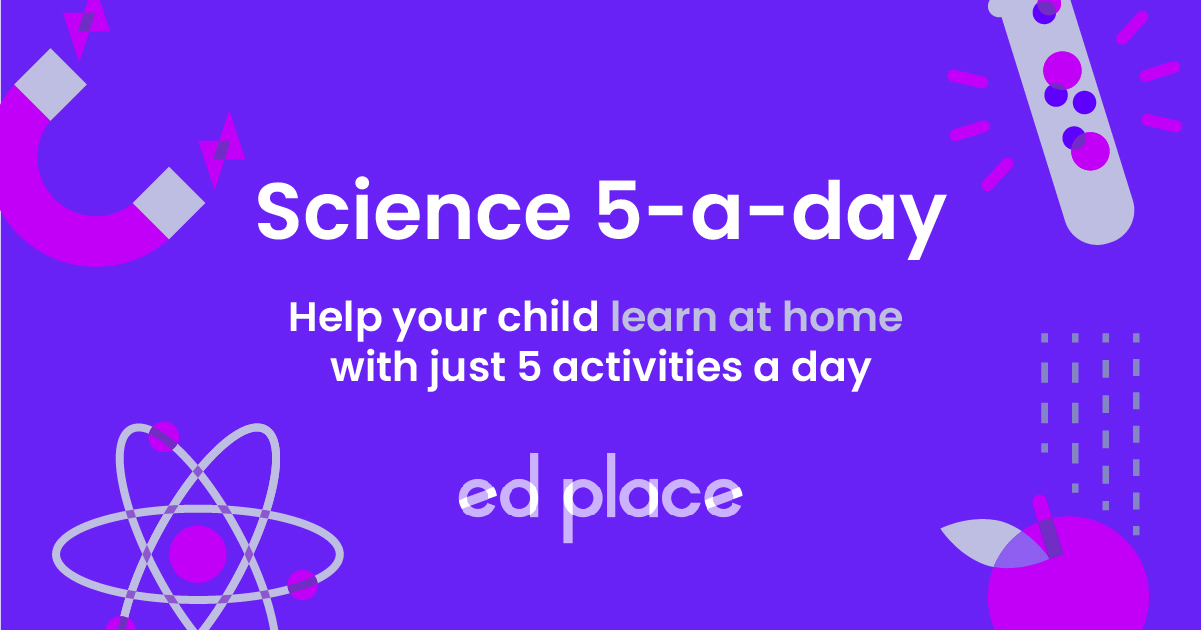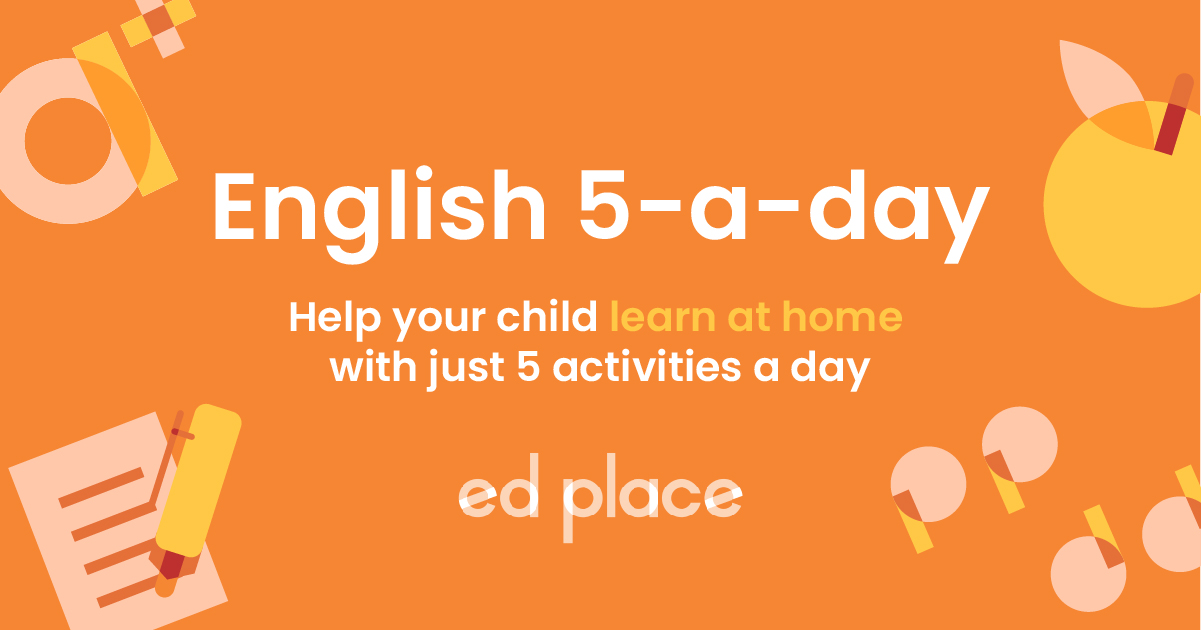Homeschooling lesson plans and ideas
If you want to ensure progression and continuity for your child, lesson plans are one of the facts of teaching life. As a home educator, you're in the favoured minority that doesn’t have to actually write or save a single lesson plan. Legally, you don’t even have to do them at all if you don’t want to: One of the many advantages of homeschooling!
However, here at EdPlace we recommend making a lesson plan for each lesson, no matter how simple or short, whether it’s on paper, screen or simply in your head. The many benefits of a lesson plan include helping to ensure you’re getting across everything you need to in a learning session and helping you to pinpoint the next steps for your child.
As always we’re happy to put our money where our mouth is and right here is an overview of the five key elements any great lesson requires; an ingredient list from which you can build your lesson all the way from flat-pack beginnings to flashy furniture in minutes!
While you blissfully won’t be tied to the timings of a school day, the timing of your lesson is still important. Think of each lesson as a mini-marathon; you need to pace yourself. Go too fast and your child might fall at the first hurdle, go too slow and they’re likely to get bored and frustrated.
As a very rough guide, we’ve put some suggested timings next to each lesson element to help you structure your planning and we’d recommend that lessons don’t last longer than an hour. You’ll want shorter lessons when your child is in Key Stage 1 and 2 and you can generally extend lessons as your child progresses through their education.
As we say an awful lot here; be guided as much as possible by your child. You might want to do ‘little and often’ lessons that are short but regular, or your child might become so engrossed in a subject you end up spending hours at a time; whatever works for them is ok! One of the best bits of home education is that your child isn’t shackled to the conventions and restraints of the school day and so you are free to embrace their passions and approach each lesson with complete flexibility for your child.
So, without further ado, let’s dive right in…
1. The Focus…
Each lesson should have a key concept which you want your child to have achieved, or at least be working towards, by the end of the session.
In Key Stages 1 and 2 some teachers like to set the focus of their lessons with an “I can…” statement that they would like a child to be able to confidently say by the end of the lesson.
For example:
“I can add two numbers up to 20” or “I can tell the difference between a noun and a pronoun.”
In Key Stages 3 and 4 it’s more common to set the lesson focus with a list of skills called ‘success criteria’, which will allow older students to gauge their own progress throughout the lesson.
For example:
2. The Attention Grabber… (3-7 minutes)
Where possible, start your lesson with a punch (not a literal one, of course!). Find an activity, a video or games that will hook your child’s attention and get their brain switched on and ready to learn.
You might find an exciting video on YouTube that highlights the key concept you want to get across. A word or number game would also help to get your child’s brain into the maths or English zone. Your ‘wow factor’ might be a trip out to a local site, an adventure in the garden or an activity in the kitchen. The possibilities are boundless and you’re not constrained by the limited resources of a school – hurrah!
3. Introduction and teaching… (5-15 minutes)
So you’ve caught your kid’s attention, now it’s your chance to shine! Spend a short amount of time teaching the concept you want to convey (this is where a whiteboard might come in handy). The key here is not to spend too long talking at them - try not to fall into the trap of lecturing! You want to give your child the key facts of the lesson and then let them loose to practice the concepts or investigate a problem themselves.
4. Activities… (15-20 minutes)
Most of us have heard the wise adage from Benjamin Franklin; “Tell me and I forget, teach me and I may remember, involve me and I learn.” He’s not wrong! So get your kid working on the challenge, concept, task or problem as early as possible in your lesson. EdPlace has a wealth of worksheets and challenges, all in line with the National Curriculum, to support your teaching of the core subjects of maths, English and science from Key Stage 1 through to Key Stage 4.
5. Plenaries… (1-10 minutes)
Punctuate your lessons with plenaries. A plenary is a pause in the lesson to review the learning done so far and to raise any questions. Think of them as lesson pit stops or service stations on the learning motorway. You can have as many plenaries as you like and they can take anything from one minute to ten! Many of them won’t even be planned but will spontaneously arise in the course of your teaching.
It’s a great idea to separate multiple activities with a plenary, a ‘check-in’ to see that your child is on track. It’s also always a good idea to end your lesson with one to give your child a chance to revisit the initial focus, discuss any questions they might have and to show you how confident they are with the concepts you’ve just taught.
Put them all together…
Once you’ve put all the elements together, a typical lesson structure might look something like this:
|
Starter |
Engaging or fun starter activity |
5 minutes |
|
Introduction and teaching |
A discussion of the lesson focus, followed by a brief explanation of the key concepts |
10 minutes |
|
Activity 1 |
Child works on set task or problem, giving them direct experience of the concept (check out the myriad of worksheets on offer here!) |
15 minutes |
|
Mini-plenary |
Review the set task and discuss any issues which may have arisen and how those could be overcome |
5 minutes |
|
Activity 2 |
A continuation or extension of the initial activity or concept |
10 minutes |
|
Plenary |
Recap the learning of the lesson and address any questions or extend your child’s thinking on the topic |
5 minutes |
|
Total = 50 minutes |
||
Where to go next…
Use your plenary and your child’s work to help you to decide how to progress in the next lesson. You might find you want to review and repeat the lesson if your child isn’t feeling totally confident yet, or they might be ready to leap on to the next steps. You can also use EdPlace’s tailored assessments to help you track your child’s progress and inform your future lesson plans.
Check out our guide on writing an effective scheme of work and timetabling your subjects here!









